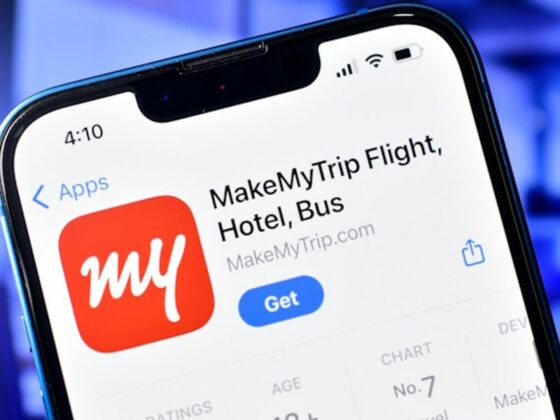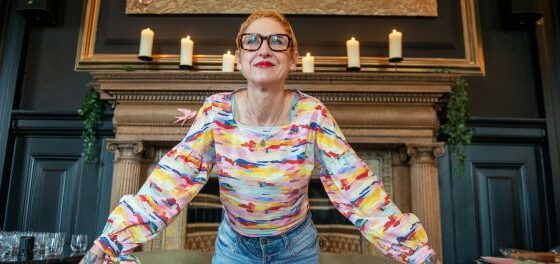Tom: I met Steve, I literally was 22 years old, and had just moved from Miami, Florida after college and working in Miami, he was one of the senior executives at Opryland Hotel at the time in Nashville, Tennessee. At the time was the largest convention hotel in the United States. A few thousand employees there in a very voluminous hotel and over a thousand rooms were running 90% occupancy at the time. Crazy successful. Steve taught me about being yourself. You know, Steve’s from Ohio. It was a baseball player, played baseball, went on, and got drafted to the bigs. And he just has this unbelievable skill of just being himself. He can be in a room of CEOs and be himself and be very engaging and magnetic. And yet he can go to the housekeeper’s standup meeting in the morning, still be himself and connect with them. And that’s not a gift that too many people have. So he taught me about individuality. He taught me about laughing. He still today is one of my best friends. He’s still the chairman of the Broadmoor Hotel, Sea Island as well. And we laugh all the time. In my office, they close my door when I talk to Steve because we just literally start, you know, cackling. And he just has fun. He shares that fun and creates a culture; that is, it’s a good thing to be spirited. It’s a good thing to have a sense of humor and to be a servant. So that’s probably the greatest gift is his ability to connect and inspire. He’s also adamant about attention to detail when it comes to service. And it’s not necessarily scripted; it’s just the attentiveness. If you go to the Broadmoor Hotel, you can feel Steve Bartolin. I have a great story about him, I think a great story, a big, big hotel on a large campus, the five-starred, five-diamond hotel. We’re walking across the iconic bridge, which connects one building to another over a lake. And he and I were telling stories, probably laughing, to be honest. And a few of the groundsmen walked past us. And Steve, hey, good morning, guys. Two of the three said, good morning, Mr. Bartolin. They called him Mr. B. The other one didn’t. We walked another 10 steps past him. He put his hand on me. He said, hey, I’ll be right back. I watched what he did. He went back and he went and caught that person out in the open area of the Broadmoor, very visible to the team members. He introduces himself as Steve Bartolin, at the time the CEO of the company. He said, hey, I’m Steve. And I noticed I said good morning to you. And here at the Broadmoor, when any guests walk past us, we say good morning. And not just with a nod. It’s with words. And we’d like you to do that, because I know you love working here. And to work here, that’s what you’ve got to do. The guy, he did a high five, he came back to me, and Steve didn’t say a word. He didn’t say like, ah, did you see me do that? It was just natural for him. That’s a gift that in our business, when we have been running a Broadmoor does, you know, the revenues and the complication of that business model, he could easily say, is that time for that? But just the opposite, Steve’s taught me the importance of that culture and the attention to detail when it comes to service.
Josiah: It feels like these are two concepts that could be intention, where you’re keeping it fun and sort of lighthearted and that attention to detail, because I’ve known people on either end of the spectrum that aren’t necessarily good at the other. But I wonder, was it maybe that focus on relationship is the connecting thread? In that example you gave, it’s a learning moment, you’re coaching someone, and he paid attention to detail on that little thing, but it sounded like it didn’t come off as very abrasive. It was more relationally based.
Tom: Very much so relationship. And one would argue in hotel terminology he was on brand, right? His brand of culture was that, you know, in certain places, someone would have stopped, corrected that person, said to go see their supervisor, move them off the off the floor, if you will. It wasn’t Steve’s approach. He introduced himself. He did it in a jovial way, but it was a learning opportunity. He related to this younger person with a high five, pat him on the back. And probably to this day, this has been years ago, that person probably tells a story that he remembers when Mr. B did that. So he was on brand. He did it in a way that connected and that’s Steve’s skill. His relationship mind, he knows who his audience is and he can play with that, but he doesn’t become a different person. He just knows how to connect with them and the connection. You know, if you’re a coach in sports or a teacher in class, you can’t teach everybody the same. You know, the smarter educator, the smarter coach learns how to communicate to your student or to your player in a way that they get it. So you’ve read lots of books about coaching and, you know, certain players, certain coaches, Phil Jackson, for example, said, I coached Michael Jordan really different than I coached Dennis Rodman. yet they were both all-star players. The skill was actual Jackson knew the psychology to get something different to get the outcome that they want. It’s the same thing we’re trying to do in business. Ike Steve Bartolin does that so artfully, I can’t think of anybody in the same class with him.




